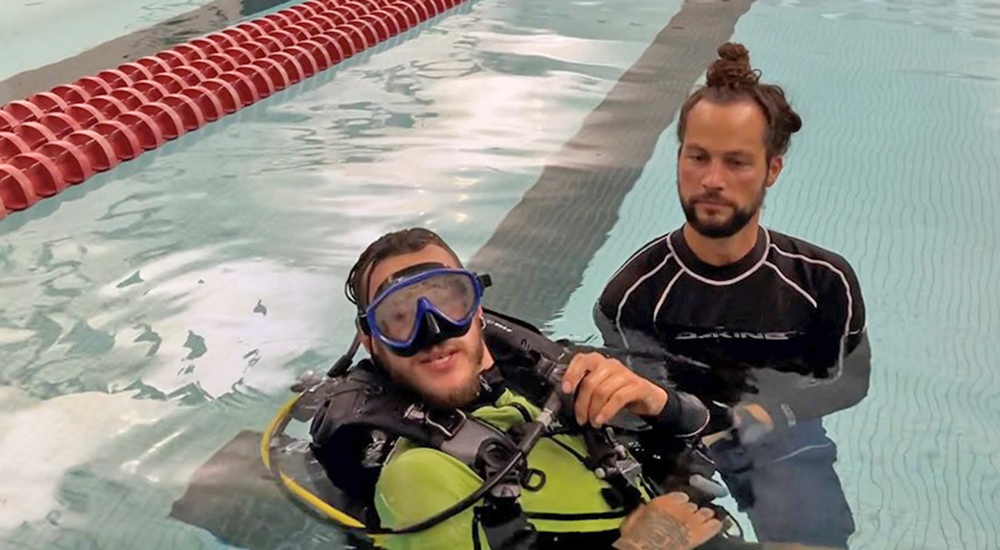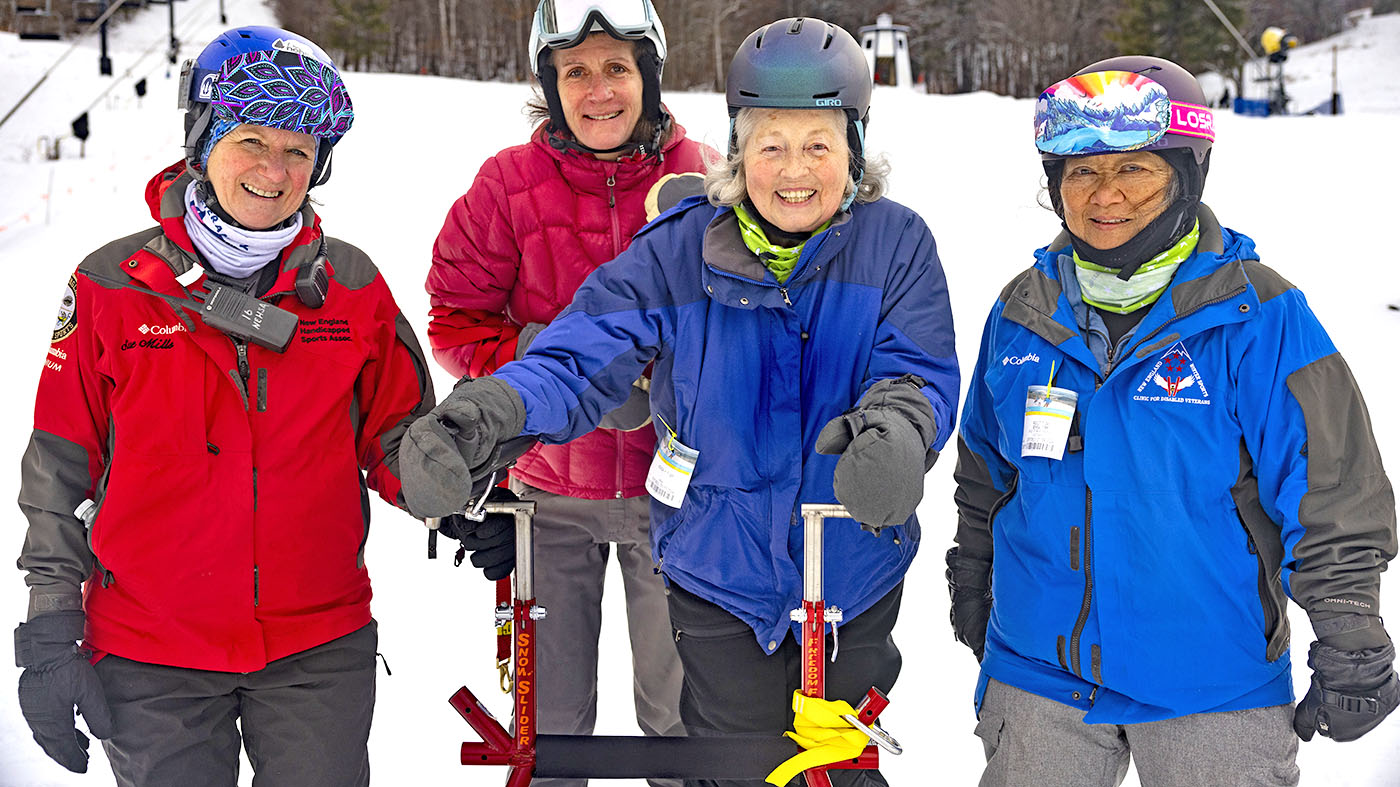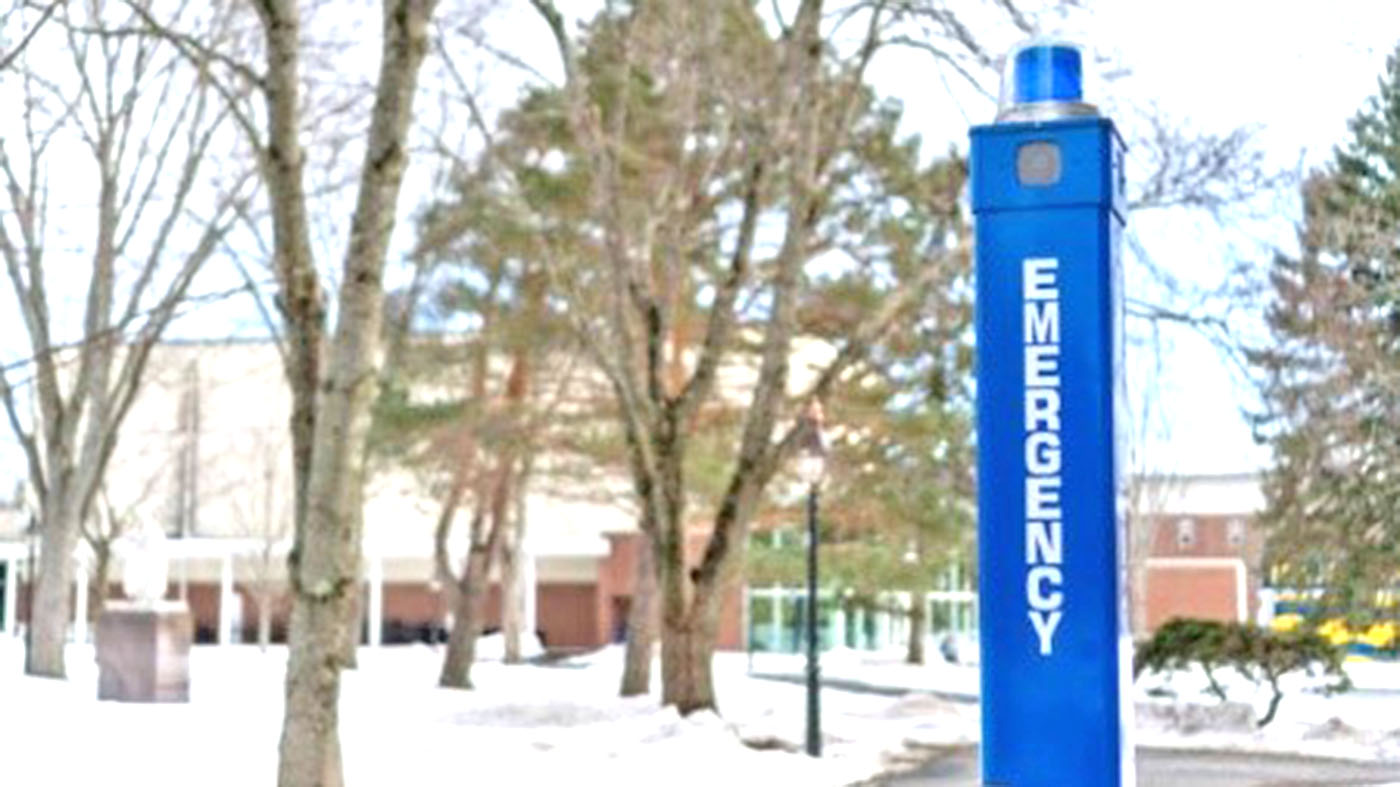Dr. Alexander Senk, deputy chief of Physical Medicine & Rehabilitation, came to Minneapolis VA as a physician resident where he worked on the spinal cord injury unit and the polytrauma center.
It’s also where, following his fellowship in sports medicine, this Olympic-class weightlifter found the opportunity to combine his passion for rehabilitation through adaptive sports and research. He also teaches up-and-coming physiatrists to help their patients achieve their goals.
His first exposure to adaptive sports was volunteering at the Junior Disability Championships during his residency.
“I have a background in weightlifting and seeing people who were wheelchair users do power lifting and lift big weight was just really inspiring. It gave me a different appreciation of who they are and what they’re going through,” Senk said.
“All of a sudden, in the water, he’s free.”
Senk says adaptive sports are very challenging for athletes, both physically and mentally, but the sense of camaraderie among fellow team members and competitors transcends the wheelchair.
Today, Senk treats Veterans participating in everything from adaptive rock climbing to adaptive scuba diving.
He helps Veterans like Seth Thomas, who broke his neck diving into a swimming pool while in Navy. Following his injury and rehabilitation treatment through VA, Thomas became open water scuba certified, meaning he can dive as deep as 40 feet. But he needs to dive with a buddy, preferably one with medical training.
Senk, who always wanted to get scuba certified himself, now works with Minneapolis VA, local Veteran service organizations and the University of Minnesota as a buddy scuba diver.
“They’re just so excited to be in there.”
“For someone like Seth who has more physical constraints, in the water, all of a sudden he’s free,” said Senk. “We have people get in the water and start doing flips and spins and they’re just so excited to be in there.”
Senk says sports and adaptive sports are especially important in the Veteran population because they are at a greater risk of obesity.
“If you look at our Veterans who also have a form of impairment, they are one and a half times more likely to be obese or overweight and that, unfortunately, means they are more likely to have other medical issues. So being able to offer them a way they can actually be active and in control of their own health is really important,” Senk added.
Adaptive sports very important for Veterans with functional impairment
Through his work with the National Veterans Wheelchair Games medical team and in his clinic at Minneapolis VA, Senk sees first-hand the improved function of Veterans participating in adaptive sports. He also sees the joy in Veterans like Seth.
“You have some restrictions, but in the water it feels like you don’t,” said Thomas. It’s the closest thing to flying you’ll ever get.”
VA salutes Senk, VA’s clinical educators and the more than 1,400 educational institutions that partner with VA to train future health professionals. These academic affiliations are coordinated by VA’s Office of Academic Affiliations. Find out more about VA’s academic mission by watching this video and visiting the Office of Academic Affiliations website.
Topics in this story
More Stories
Spinal cord stimulation implantation helps Veterans suffering from chronic pain improve their quality of life without narcotics.
After Addison’s Disease and lumbar spine surgery, nurse Veteran Gayle Smith re-learned how to ski. “You have more courage than you think.”
Follow these 10 winter safety tips to stay warm, safe and protected during the cold winter.







I request adaptive sports therapy from my whole health. We shall see what happens. Starting to lose complete faith in the medical system.